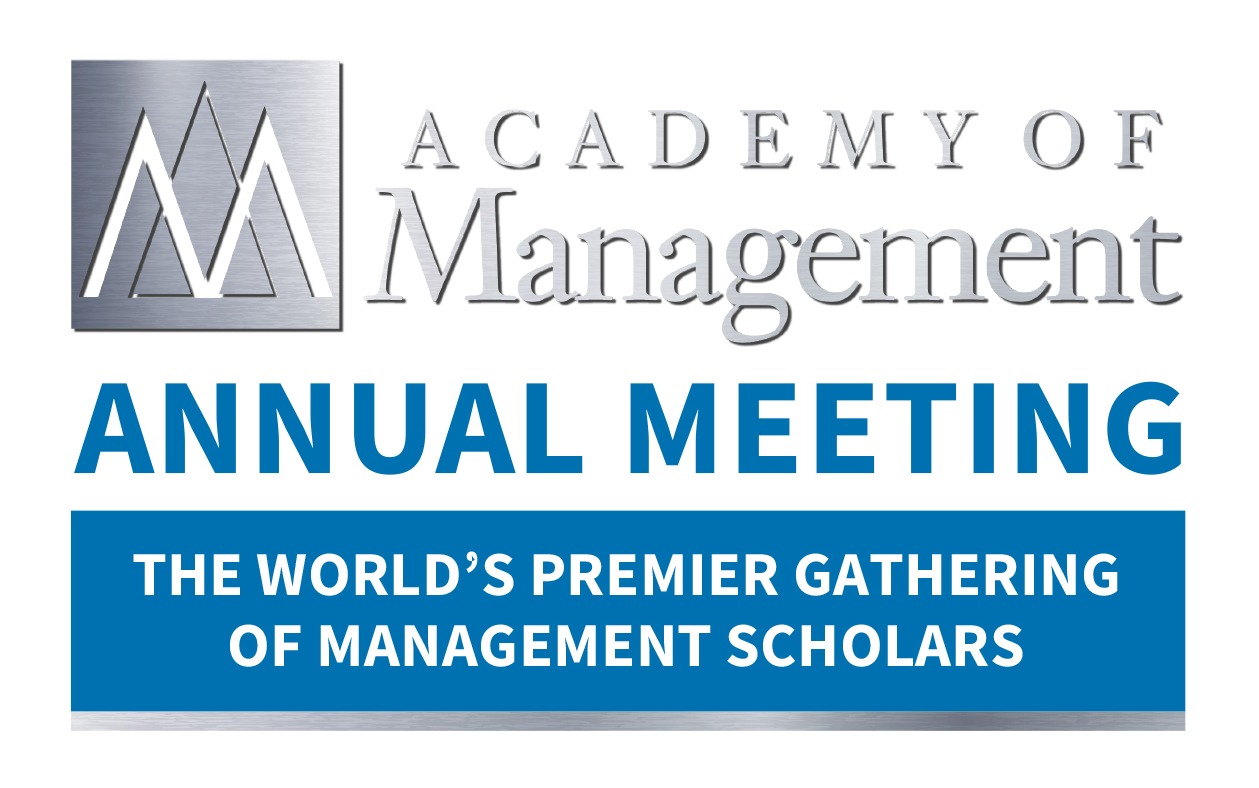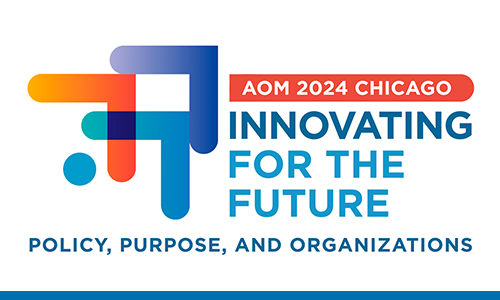Management, Spirituality and Religion Division (MSR)
2025 Division Scholarly Program: Call for Submissions
Program Chair: Anil K Maheshwari, Maharishi International University, Iowa, USA
Co-chair: Anita Mendiratta, Keshav Mahavidyalaya, University of Delhi, India
The Management, Spirituality and Religion (MSR) Division welcomes scholarly submissions to the AOM 2025 meeting. The MSR Division accommodates a wide range of scholarly inquiries. Given the cross-disciplinary and challenge-led nature of our mission, we welcome submissions that span different domains and scholarly fields.
MSR Domain Statement
Management, Spirituality, and Religion is a community engaged in interdisciplinary theoretical & applied research & pedagogy related to the relevance and relationship of spirituality and religion in management. MSR explores how spirituality and religion influence organizational dynamics and affect management outcomes. MSR is devoted to defining the relevance and impact of spirituality and religion in management, organizations and society. Major areas of study include theory building and empirical research around the issues of consciousness, spirituality and religion as they influence principles and practices in management. MSR research has made important contributions to better understand the meaning of work, the impact of spirituality and spiritual leadership in the workplace, the purpose of business, the effects of religious pluralism in the workplace, and the distinctive elements of individual religious and spiritual beliefs that cultivate inner awareness and promote wisdom for the common good.
This year MSR Division's theme is centered on Higher Consciousness - a timely and significant topic. We seek contributions that examine higher consciousness in leadership, decision-making, organizational culture, and well-being. How can it help leaders navigate today’s complexities and turbulence? What insights from spirituality, philosophy, and psychology can transform business and society? Topics such as:
- Consciousness in leadership and decision-making
- Research paradigms that explore consciousness
- Spiritual practices and organizational transformation
- Well-being, mindfulness, and ethics in business
- Cross-cultural perspectives on spirituality
- Artificial Intelligence and development of consciousness
In addition, here are some sample questions of interest to MSR:
- How do our methods of researching spirituality and/or religion within organizations shift the perspective in business to a broader and more inclusive perspective?
- How could spirituality and/or religion encourage or discourage greater collaboration and fulfillment for workers?
- What innovations in organizational policies, processes, and practices can help managers cope with intractable problems while staying true to their purpose?
- In what ways can managers align incentives and cultivate relational arrangements to promote co-innovated solutions that remain true to purpose driven objectives?
How can cross-DIG research on higher consciousness promote global social, environmental, and economic well-being?
Four types of submissions
We welcome four types of submissions: scholarly papers, presenter symposia, and/or panel symposium, and poster submissions for the 2025 MSR Scholarly Program:
- Paper submissions involve one or more authors submitting an academic paper. If accepted, scholarly papers are then grouped by the MSR Program Chair into themed paper sessions.
- Presenter Symposia involve a series of authored papers that you, the submitter, organize around a theme of your choosing. Titles and authors/presenters are associated with each presentation.
- Panel Symposia intend to engage a group of panelists in an interactive discussion. There are no paper titles associated with the panelists’ presentations. Proposals should include a clear description of the topic and the procedure that will be used to manage the discussion among panelists and with the audience.
- Poster Sessions have been introduced this year. They are intended to encourage open dialogue and are a great way for researchers to share their work in a less formal setting compared to traditional presentations while still being an official part of the program.
Process Overview
The following overview is intended to outline the broad steps involved that take us to the finished MSR Scholarly Program:
- Submissions to the Scholarly Program segment of AOM must self-identify a single sponsoring division or interest group (i.e., MSR). However, symposium submitters are encouraged to identify other divisions/interest groups whose members might find their submission relevant. The submission is initially reviewed by the primary sponsor. If it is accepted for inclusion into MSR’s Scholarly Program, the submission becomes visible to the other divisions/interest groups that have been listed and they are invited to co-sponsor the symposium.
- Based on the reviewers’ feedback, the MSR Scholarly Program Chair selects specific submissions as:
- MSR Showcase Symposium – These are the best symposium submissions received and are expected to attract a large audience. They do NOT need to address the conference theme. The MSR Scholarly Program Chair may select up to 10% of symposia accepted by their division to be designated as showcase symposia.
- MSR Best Paper Award – This is the best paper submission that received highest reviewer ratings.
- Based on the reviewer feedback, the MSR Scholarly Program Chair recommends a single accepted submission for the following AOM Program Awards:
- William H. Newman Award for Best Paper Based on a Dissertation
- Carolyn Dexter Award for Best International Paper
It is an honor to be nominated for these awards and the papers are designated as nominees on the program. More information on the annual meeting program awards is available on the AOM website
We welcome scholarly paper, presenter symposium, and/or panel symposium submissions for the 2025 MSR Scholarly Program:
- Paper submissions involve one or more authors submitting an academic paper, which if accepted, is grouped by the MSR Program Chair into a themed paper session.
- Full paper submissions should not exceed 40 pages.
- In addition to full paper submissions, MSR is also experimenting with a call for developmental papers of up to 3000 words. Developmental papers should be clearly marked “Developmental Paper” on the front page and their purpose is to enable authors to discuss their work while it is in its developmental stage, so comments and feedback obtained at the conference can be incorporated in the final stages of research and writing up. The developmental papers should typically include:
- Introduction and proposed research question
- Brief literature review
- Proposed methodology and/or initial findings
Potential contribution
- Presenter Symposia involve a series of brief 2-3 page authored papers that you, the submitter, organize around a theme of your choosing. Titles and authors/presenters are associated with each presentation.
- Panel Symposia are intended to engage a group of panelists in an interactive discussion. There are no titles associated with the panelists’ presentations. Proposals should include a clear description of the topic and the procedure that will be used to manage the discussion among panelists and with the audience.
- Poster Sessions are intended to encourage open dialogue and are a great way for researchers to share their work in a less formal setting. Poster presentations will be scheduled in one-hour in-person poster sessions taking place in a highly visible location at the Annual Meeting.
Along with the Call for Submissions, MSR also makes a Call for Reviewers. If you plan to submit a paper, please also sign-up to review.
We look forward to the range of teaching, practitioner, and scholarship research that will crystalize our 2025 MSR effort to “cultivate inner awareness and promote wisdom for the common good” (MSR Domain Statement).
The "rule of three" applies: individuals may submit, appear in, or be associated with up to three scholarly submissions.
Final Notes
- Submitters do not need to be members to submit a proposal to the Annual Meeting.
- If a proposal is accepted, participants must register to attend the Annual Meeting.
- All participants attending the Annual Meeting must be AOM Members and registered for the Annual Meeting.
Submitters who are unclear about the submission process, please review the submission guidelines.
Dates to remember
- Reviewer Sign Up Opens: Early December 2024
- Submission Center Opens: Early December 2024
- Submission Deadline: Tuesday, 7 January 2025 at 17:00 ET (UTC-5/GMT-5)
 85th Annual Meeting of the Academy of Management
85th Annual Meeting of the Academy of Management
(AOM 2025)
25-29 July 2025
Copenhagen, Denmark
Key Dates
- Submission Center Opens:
Early December 2024 - Reviewer Signup Opens:
Early December 2024 - Submission Deadline:
7 January 2025
17:00 ET (GMT-5/UTC-5) - Review Period:
16 January-13 February 2025 - Housing Opens:
Late January 2025 - Registration Opens:
Early March 2025 - Decision Notifications:
Late March 2025 - Program Available:
June 2025 - 85th Annual Meeting:
In-person
25-29 July 2025
Copenhagen, Denmark
